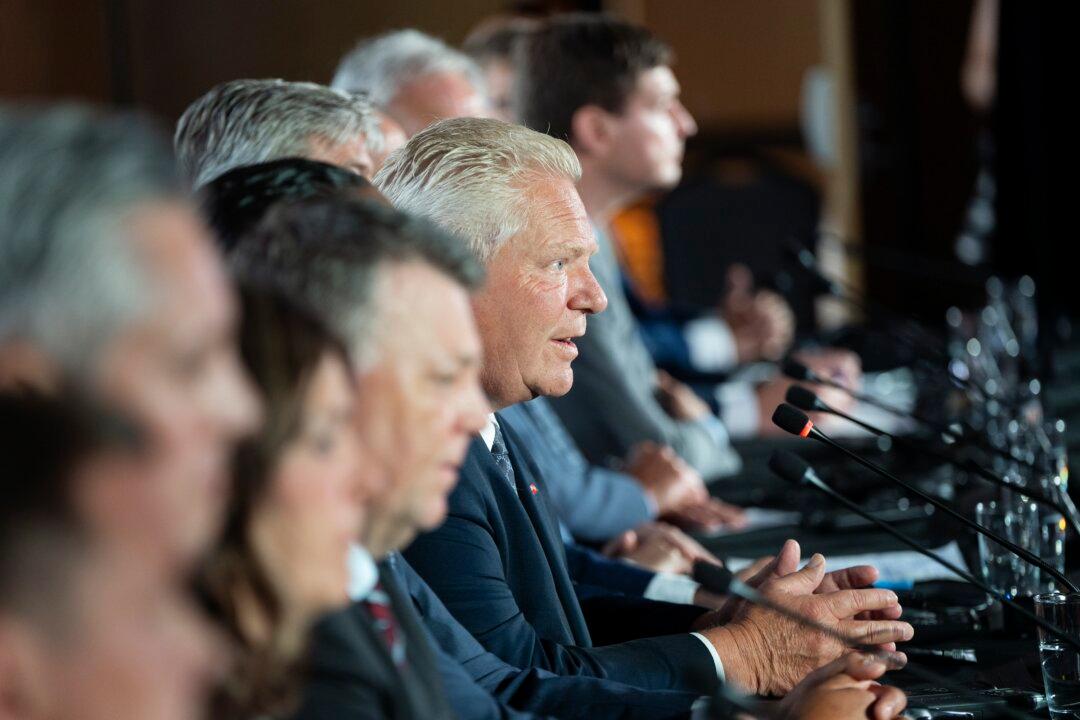The premiers of Ontario, Quebec, Alberta, and New Brunswick have called for the federal government to provide them with more assistance to deal with immigrants and asylum seekers, who they say are putting strains on housing, social services, and provincial finances.
“When it comes to asylum seekers, both Quebec and Ontario bear the brunt of it. We’re just asking the federal government to give our fair share,” Ontario Premier Doug Ford said during a press conference on July 17 following the premiers’ annual summer meeting.





